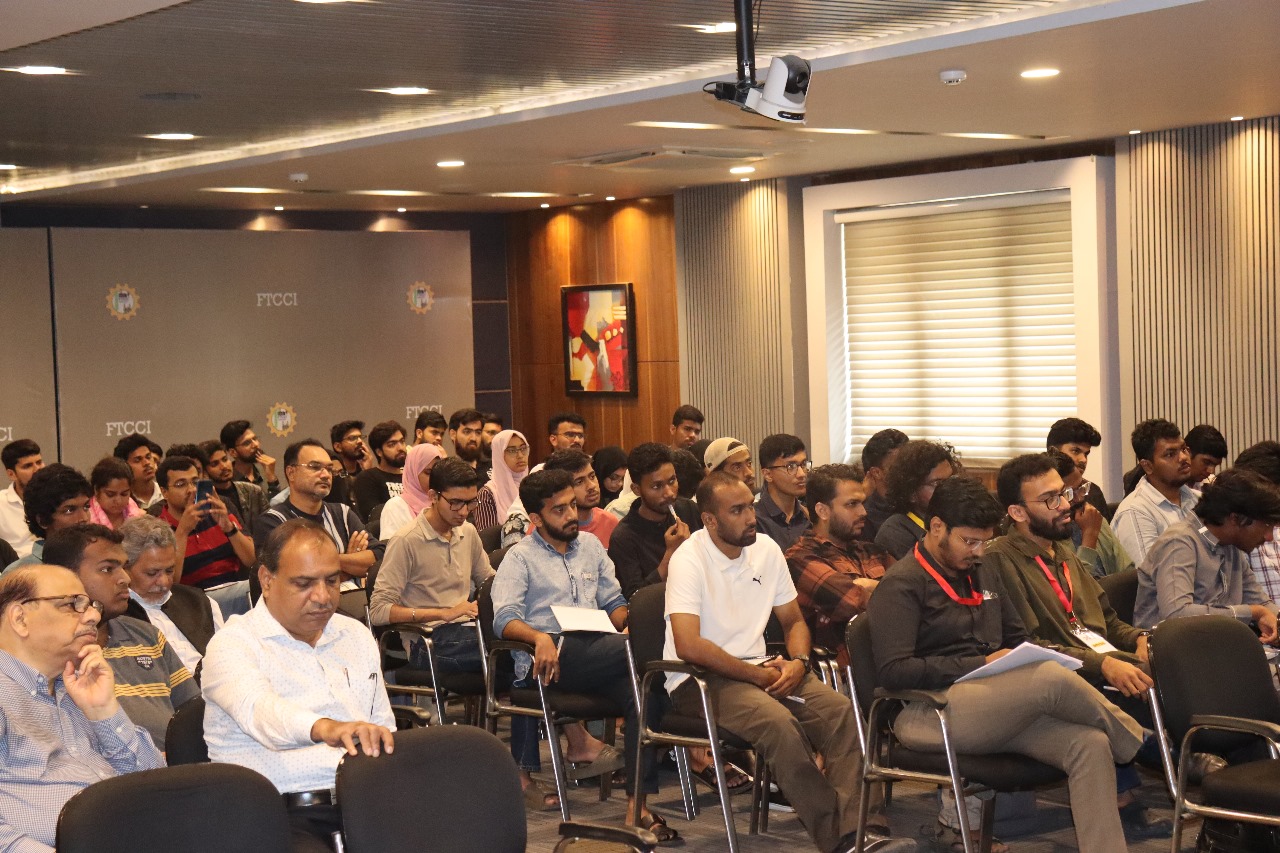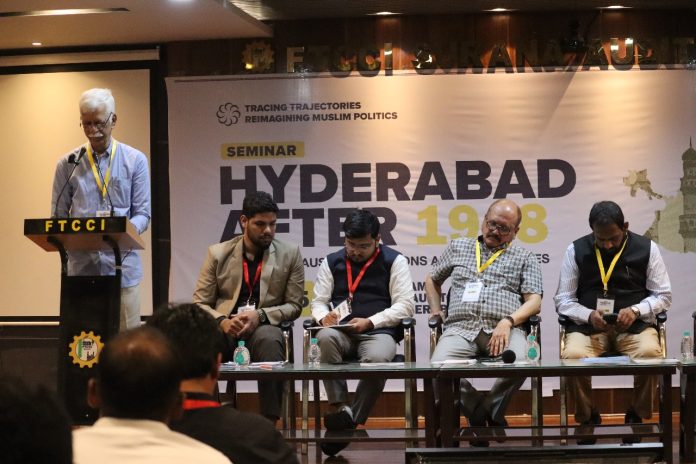Hyderabad, Aug 25: The Students Islamic Organization of India (SIO) Telangana held a seminar titled “Hyderabad State After 1948: Pause, Reflection, and Continuities”. In a hall packed with 130 people, many prominent journalists and activists presented their views on various topics to discuss the conjunctions and connect them with the present paradigm. The event began with an introduction to the idea of understanding the present through the past, from the violent histories of Operation Polo to the formation of Telangana. The notion of how historical events shape the new existence of the Muslim community was explored.
 In the first session, Mir Ayoob Ali Khan (Consultant Editor, Siasat) spoke on “Reimagining the Public Spheres in Neo-Liberal Hyderabad,” discussing the chronology of the state’s history and public responses to atrocities throughout the history of the Deccan up to the present. This was followed by veteran journalist and former MLC Syed Aminul Hasan Jafri, who presented a historical trajectory of the political situation in Hyderabad.
In the first session, Mir Ayoob Ali Khan (Consultant Editor, Siasat) spoke on “Reimagining the Public Spheres in Neo-Liberal Hyderabad,” discussing the chronology of the state’s history and public responses to atrocities throughout the history of the Deccan up to the present. This was followed by veteran journalist and former MLC Syed Aminul Hasan Jafri, who presented a historical trajectory of the political situation in Hyderabad.
Abdul Hafeez (State President, SIO Telangana) referred to the painful events of the police action of 1948, stating, “These events tried to break the economic and political backbone of the Muslims and pushed them centuries back.”
He also added, “In his letter, Maulana Maududi advised the leaders of Hyderabad insightfully to make agreements for the cultural self-determination of Muslims and not to fight and resist with sentimentality and empty slogans.”
The afternoon session featured a panel from various parts of the Hyderabad State, including Pramod Mandade (PhD Scholar, IIT Bombay) from Marathwada, Danish Majeed (Filmmaker, Journalist) from Hyderabad, and Khurram Muraad (Documentary Filmmaker) from the Kalyani region. The three panelists narrated the experiences of violence through the stories of survivors, delving into themes of violence, memory, recollection, records, spaces, language, migration, living trauma, hope, and how survivors navigate the present.
Dr. Faheemuddin Ahmed (Assistant Professor, Translation Studies) gave brief concluding remarks, congratulating the organizers and the audience.




